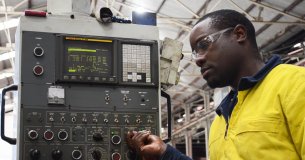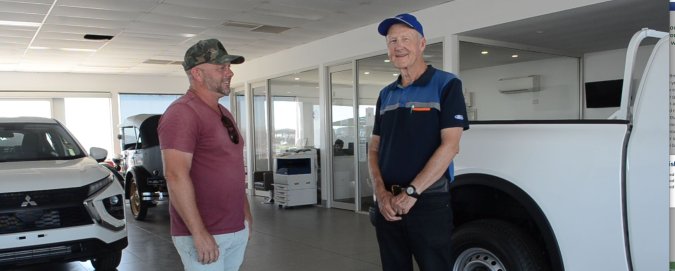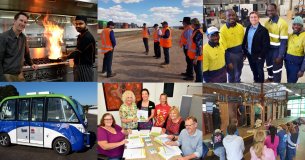-
Featured Items
-
Featured Resources
 Funding & Grants
Don't miss out on funding opportunities. Stay informed with our up to date online listings and email notifications.
Read More
Funding & Grants
Don't miss out on funding opportunities. Stay informed with our up to date online listings and email notifications.
Read More
 Skilled Migration
Our services help both applicants and employers, to learn more, develop plans, submit applications, and settle in.
Read More
Skilled Migration
Our services help both applicants and employers, to learn more, develop plans, submit applications, and settle in.
Read More
 Research and Analysis
Good research and analysis makes the case. How can our resources and services help your project or application?
Read More
Research and Analysis
Good research and analysis makes the case. How can our resources and services help your project or application?
Read More
 Information & Data Resources
With resources like REMPLAN, Regional Knowledge Base, and decades of data, discover how we can help your project.
Read More
Information & Data Resources
With resources like REMPLAN, Regional Knowledge Base, and decades of data, discover how we can help your project.
Read More
-
Stay InformedSubscribe to one or more of our regular email subscriptions, to be kept up to date on news and funding opportunities for the region
-
-
Our Region
- Our Region
- Regional Plan
- Regional Data
- Current Regional Issues
- Population Migration Analysis for 2016-21
- Job Vacancies Continue at All-Time High
- National Debt - What it Means for Our Economy?
- The True Value of Home Solar
- The Economic Impacts of Local Government Amalgamations
- State of the Regions Report 2014-15
- Antifragility - A different take on regional economic development
- Biohubs - Collaborative Waste Management
- Attracting New Residents
- Socio-Economic Impacts of the Murray Darling Basin Plan
- Murray Darling Basin Water Recovery
- Growing Businesses
- The Northern Inland Economy
- Geographical Overview
- Major Industry Sections
- Our Services
- Grants and Funding
-
Skilled Migration
- Skilled Migration
- Skilled Employer Sponsored Regional Visa
- Skilled Work Regional Visa (subclass 491)
- Temporary Seasonal Workers
- Designated Area Migration Agreement (DAMA)
- Helpful Information for Visa Holders
- Information for Employers
- Case Studies
- Payment Details
- Advice & Further Information
- Contact Details
- News & Events
-
Our Projects
- Our Projects
- Current Projects
- The Welcome Experience
- Come On Inland
- Wool Works - Wool Training Schools
- Skilled Migration
- Metal Works - Welding and Fabrication Schools
- Stories of Resilience
- Alt Brothers Beekeeping - Glen Innes
- Carelle's Toy Store - Glen Innes
- Greenhill Orchards - Arding
- Gwydir Meats - Warialda
- Kaputar Motors - Narrabri
- Moonbi General Store - Moonbi
- Sandstock - Tingha
- Sherelle Fashions - Tenterfield
- Sleepy Merino - Inverell
- Tenterfield Chamber of Toursim, Industry and Business - Tenterfeild
- The Welders Dog - Armidale
- Walcha Veterinary Supplies - Walcha
- AGCAP - Agribusiness Careers & Professions
- Northern Inland Regional Investment Profile
- Past Projects
- Digital Economy Strategy
- Business Growth Project
- Go Digital
- How to Start an Online Business
- Create Your Website Using Squarespace
- How to Edit Your Squarespace Site - Part 1
- How to Edit Your Squarespace Site Part 2
- Add a Shop to Your Squarespace Site
- Start a Blog and Find out What Customers are Searching
- 14 Tips For a Better Blog Post
- Which Social Media Platforms are Best for Your Business
- How to Use Facebook Effectively For Your Business – Part 1
- How to Use Facebook Effectively For Your Business – Part 2
- Instagram Tips for Business
- Catching Up, More Instagram & Dealing with Haters
- Getting Started with Twitter for Business
- Social Media Scheduling Tools
- How to Start an Etsy Shop – Part 1 – Research
- How to Start an Etsy Shop – Part 2 – Signup
- Online Security for Your Business
- Product Photography and Website Images: Your Guide
- 5 Tips to Improve your Productivity in your Business
- Best Online Business Resources
- How to Improve Your Communication Skills and Win More Clients
- NBN Coordinator
- Putting Power Back in the Regions
- Road Freight Study
- Town Audit Benchmarks
- Food and Wine
- Youth Survey
- Digital TV Switchover Assistance
- Northern Inland Transport Guide
- Live.Train.Work
- Northern Inland Innovation Awards
- Northern Inland Innovation Awards - 2017
- Northern Inland Innovation Awards - 2016
- Northern Inland Innovation Awards - 2015
- Northern Inland Innovation Awards - 2014
- Northern Inland Innovation Awards - 2013
- Northern Inland Innovation Awards - 2012
- Norther Inland Innovation Awards - 2011
- Prime Super Northern Inland Innovation Awards - 2010
- Prime Super Northern Inland Innovation Awards - 2009
- Northern Inland Innovation Awards - 2007
- Northern Lights Project
- NBN Smart Home
- Murray Darling Basin
- Moree Plains Business Workshops
- Namoi Investment Prospectus
- Industrial Land
- Bioenergy and Local Electricity Retailing
- Northern Inland Business Energy Assessment
- Skills for the Future
- Impacts of COVID-19 on Businesses
- Past Projects of NIRDB
- Aboriginal Employment and Enterprise in the Gunnedah Region
- Art as an Industry
- Aviation Survey
- Farm Forestry - Northern Inland Forestry Investment Group
- New England North West Film Strategy
- Northern Inland Excellence in Business Awards
- Food and Wine 2003 - 2008
- Prime Super Northern Inland Innovation Awards 2009
- Regional Business Networking Program
- Regional Leadership Course 2008
- Viticulture Strategy 2002-2003
- About Us
- Contact Us
- Other Resources
- Privacy and Legal
- Search
- Our ProjectsOur Projects
- Current ProjectsCurrent Projects
- Stories of ResilienceStories of Resilience
- Kaputar Motors - NarrabriKaputar Motors -…

Stories of Resilience - Kaputar Motors
Narrabri
Narrabri’s Kaputar Motors is a landmark car dealership in north-west New South Wales. Drought, bushfires, Covid-19 and floods have all impacted the area, with flow-on effects for the business. With vehicles being relatively big-ticket purchases, consumer confidence and consequently, sales figures plummeted. General Manager Ken Flower said that the financial position of the business fell below 25 percent of what it was but it did survive and has regrown steadily. Monitoring of the financial capacity of the business and responding pre-emptively was key to survival.
“Kaputar Motors was started in 2008, but I have only been here since 2017. It has always been a local, family-owned business, employing local staff. We sell new Ford and Mitsubishi cars and we service vehicles. Half our role is selling cars and half is servicing them. Currently it has the biggest workshop for light vehicles in the Narrabri Shire. We also sell accessories, like bull bars, steel trays, driving lights and tyres.”
“Our staff is currently at 12, down from 22 before the drought and Covid-19 and we’re slowly rebuilding, like a lot of businesses here."
"We are slowly rebuilding,
like alot of businesses here."
Cars are pretty important to everybody’s personal and work life. If you had to take them to Gunnedah or Tamworth to get them serviced it would be a very costly thing. I think we provide a pretty important service and we employ locals, who live and contribute to the community,” he said.
Ken explained what it was like for Kaputar Motors during the dark times. “Extremely tough. When the farmers do it tough, the whole town does it tough. Our sales went down by 75 percent to 25 percent of what they used to be. It became subsistence living. We got down to a staff of seven here, from 22. Three quarters of our staff gone; it was tough!
I think unfortunately, some businesses didn’t survive but I’ve been amazed at the resilience of this business and other businesses. Our biggest challenge in rebuilding is getting product like cars, they’re in short supply, spare parts are in short supply and staff. It’s hard to build up; it unfortunately takes a while.”
Making Tough Choices
Although emotionally difficult, the measures Kaputar Motors undertook were critical to the survival of the business. “The thing was cost-cutting. We cut costs where we could. The absolute last cost we wanted to cut was staff but unfortunately, if you don’t have the income, you can’t maintain your staff. Like a lot of businesses, we were in negative cashflow for three tax years in a row. You’ve got to cut your costs right back and get through it, which I’m pleased to say we have,” Ken said.
Ken explained what was particularly important when they made necessary cutbacks. “Knowing what staff you had to retain and what they needed to feel comfortable, that they were secure and having a plan for how you were going to make money in the new future. We’re a little more cautious now with how we expand, so we can better cope when things go down again.”
“The balance is between having continuing quality employment for your staff and ongoing service to your customers, you can’t trade one off to get the other. It’s got to be a win for both sides. People do like secure jobs, in safe, friendly environments where they feel like they’re making a difference. We try to provide that and generate customer value in the meantime.”
Sourcing staff is a major challenge, which made having to lose some during the hardest of times all the more difficult and it was impeding the business’ ability to regrow. “There’s a large demand for people with a trade qualification in the Narrabri Shire. The reason being that we have the largest open cut mine in New South Wales as well as other large coal mines. Mining is the single biggest employer. They require labour and they’re offering good paid jobs, they’re a good employer and we have to compete with that. Not only is it hard to get staff, if you do get them, you can’t get houses for them. It's been an ongoing challenge. However, it is nice that salaries and conditions are being driven up by economic conditions, rather than people going out marching and striking. Even though I grizzle about it, it’s a good thing for our society to have such competition for wages.”
The Kaputar Motors tyre department remains a casualty of the dark times and the labour shortages. “We’ve closed it down but the idea is, as we get staff, it will re-open. We still sell tyres but we just don’t advertise and are trying to build that side of the business for now.”
"Know what your business is and know your cashflow.
Don't wait until year end, when your accountant
tells you whether you've done well or not."
The Importance of Closely Monitoring Funds
Ken Flower’s advice for other regional businesses struggling through dark times. “Know what your business is and know your cashflow. Don’t wait until the year end, when your accountant tells you whether you’ve done well or not. You’ve got to know each week and each month how you’re tracking. When you trend into negative territory, you’ve got to know how many more months of that you can survive before you have to pull the pin and not leave anybody in any trouble, meaning every employee gets paid out their dues and nobody gets left unpaid. So, you’ve got to know your cash burn, know your resources and that makes you feel secure to go on, to a point. If the drought was still here, we wouldn’t be here. We didn’t have enough money to survive until now but we did have enough money to get through until it did get better.”
“Just create value for money. Know your cashflows, know your staff and know what you want to do to rebuild. Keep your core staff, just like you keep your core buildings and equipment,” Ken said.
Watch Ken's Story
Related Pages
- Stories of Resilience
- Alt Brothers Beekeeping - Glen Innes
- Carelle's Toy Store - Glen Innes
- Greenhill Orchards - Arding
- Gwydir Meats - Warialda
- Kaputar Motors - Narrabri
- Moonbi General Store - Moonbi
- Sandstock - Tingha
- Sherelle Fashions - Tenterfield
- Sleepy Merino - Inverell
- Tenterfield Chamber of Toursim, Industry and Business - Tenterfeild
- The Welders Dog - Armidale
- Walcha Veterinary Supplies - Walcha







 Latest News
Latest News


